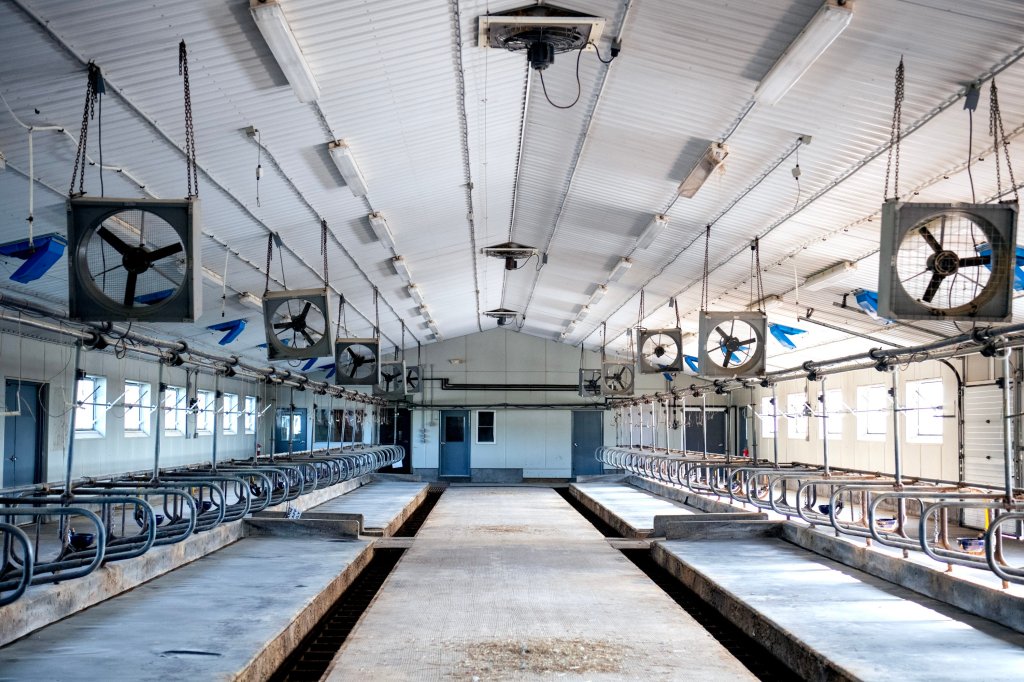
NEW GLOUCESTER — Echoes reverberate off the pristine walls of the dairy barn at Pineland Farms like they never have before. There’s no hay covering the floors. The chirps of birds are no longer drowned out by moos.
Pineland Farms has shut down its milking operation that once filled those stalls and sold off all but two cows in its Holstein herd, considered one of the oldest in the nation. It’s keeping a pair of youngsters for educational purposes.
It’s a bittersweet change for staff at Pineland — a farm, education center and major cheese producer with a large campus in New Gloucester. And it’s an upsetting change for some community members.
But milking and caring for 100 cows had become too costly; Pineland Farms said it lost $500,000 to $600,000 a year on the operation in recent years and was effectively subsidizing its commercial dairy operation. Dairy producers across the state have expressed similar concerns: that costs are unsustainable, profits are shrinking and smaller farms in particular are struggling to stay afloat.
The farm sold 60 milking cows and 40 heifers and calves in March for an average of $2,100 apiece, with most going to two dairy operations, one in New York and another in Vermont. Pineland Farms did not disclose the total sale price.
It might sound counterintuitive, but Pineland believes parting ways with its Holsteins will make Maine’s struggling dairy industry stronger. The farm is growing its educational programming and says its cheesemaking business is going strong.
“We’ve had to think where our focus should be to help dairy in the long run,” said Erik Hayward, executive vice president of the Libra Foundation, which owns Pineland’s nonprofit and for-profit arms.
Even so, the cows’ absence is noticeable.
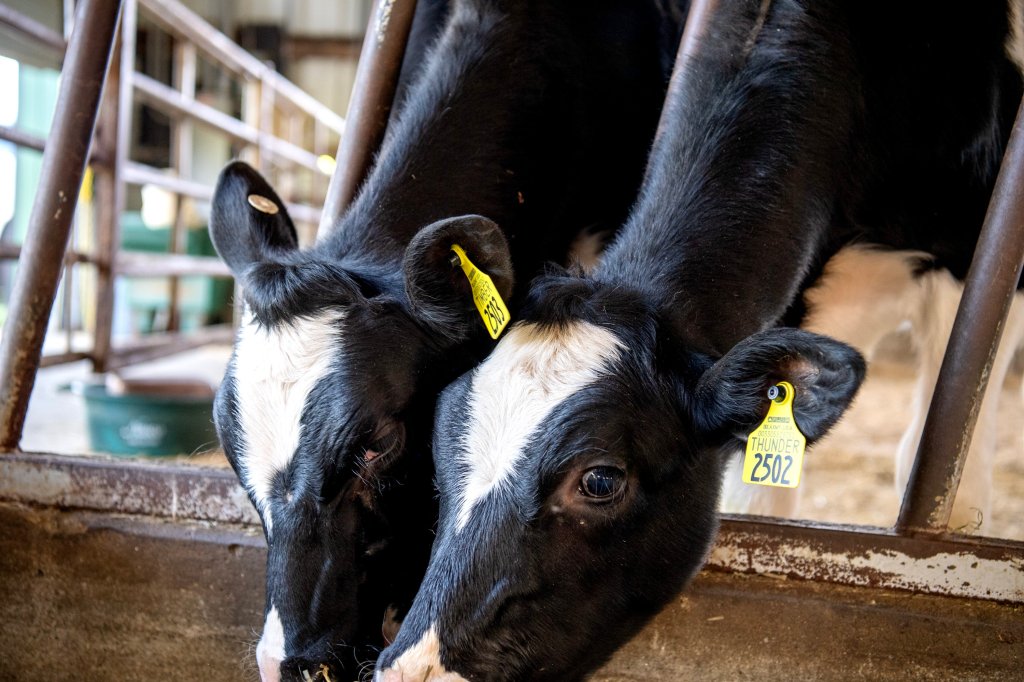
HOLSTEINS AT PINELAND
The Libra Foundation purchased the 5,000-acre property in 2000, replenishing the land that was left in disrepair by the state after it closed an institution for developmentally disabled adults and children.
It built a tie-stall barn — a rare form of lodging for dairy cows where they can live and be milked without moving a hoof. And Pineland filled out that barn with the herd of Holsteins, which it purchased two years later.
The cows’ lineage dates to the 1880s, when the Merrill family started breeding the matriarch, Trina Redstone Marvel, known as “Old Trina.” It stayed in the Merrill family until the 1960s, when Mike Wilson purchased the herd for his farm in Gray.
When the herd arrived at Pineland, there were about 200 Holsteins, half of which were milking cows. The count had fallen to 100 by March.
Though the herd initially was the sole source of milk for Pineland’s cheeses, that was short-lived. This year, it only contributed to about 10% of the 10 million pounds of milk Pineland used to make cheese at its production facility in Bangor.
Owning Holsteins is already an expensive endeavor. But Pineland had the additional burden of keeping its barn as clean as possible because it was on public display for demonstrations and field trips. (The animal barns have immaculately swept pathways and vacuumed surfaces.)
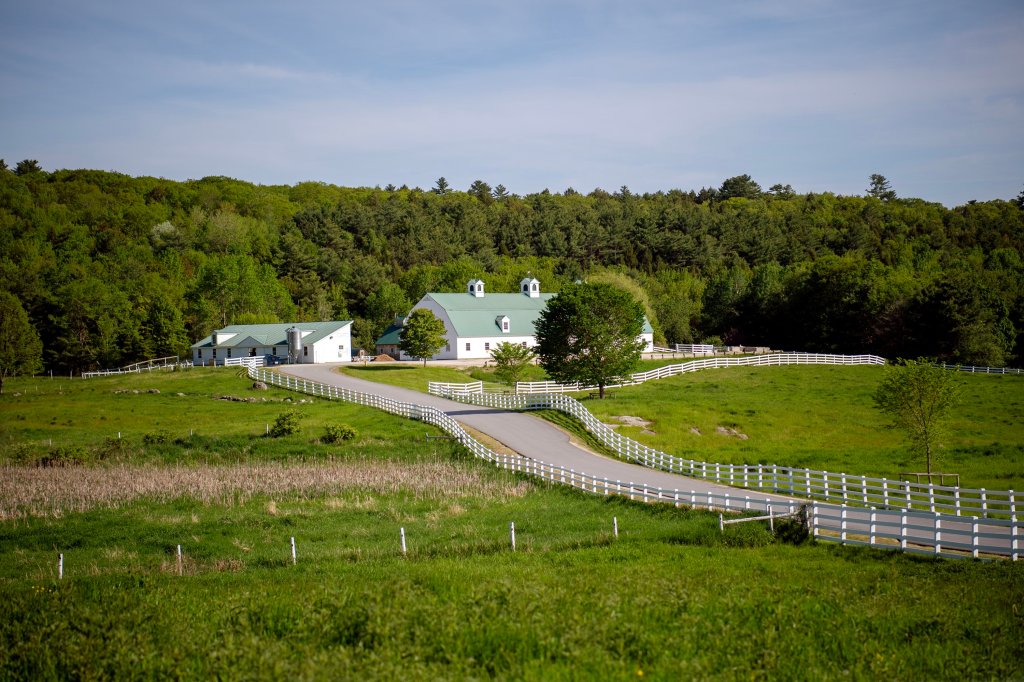
DAIRY INDUSTRY STRUGGLING
Maine, at its height, had what was called the “Dairy Belt,” from Waldo County, across to Kennebec, into Somerset and Franklin and down to Androscoggin.
But the heritage industry is waning. In the 1950s, there were 4,500 dairy farms in Maine; today there are 135 that still ship milk commercially, according to Julie-Marie Bickford, executive director of the Maine Milk Commission.
Maine dairy farms have an average of 100 cows, compared to 250-300 nationally, Bickford said. The largest dairy producer in America, Rockview Family Farms in California, has 100,000 cows, according to trade publication The Bullvine. Maine’s largest farm, Flood Brothers Farm in Clinton, has 1,700.
“Someone in California once asked me what the average farm size was in Maine. And when I told them that, at the time, it was about 90 cows, they said, ‘I’m sorry, it’s not worth talking to you if you don’t have at least 1,000 cows,’” Bickford said.
And those smaller farms pay the price, struggling to keep up with the big players that the system favors.
Small-scale dairy farmers have less negotiating power over the price of their milk. And they front the costs for shipping, including a fee for a truck just stopping at a farm. Because there are few processors in the state, over 50% of the raw, commercially made milk is shipped out of Maine, making those costs even higher than in other states.
“Having 60 Holsteins milking is more of a commercial operation done at a demonstration scale, which any farmer in the state would look at and say, ‘You guys are losing your shirts,’” Hayward, at the Libra Foundation, joked. “It was a question of where do we focus those resources and our energy?”
That focus has ultimately landed on supporting the rest of Maine’s dairy industry.
“As the largest cheese producer in Maine, right out of the gates, we need to be able to put a dent in that lack of processing capacity in the state,” Hayward said.
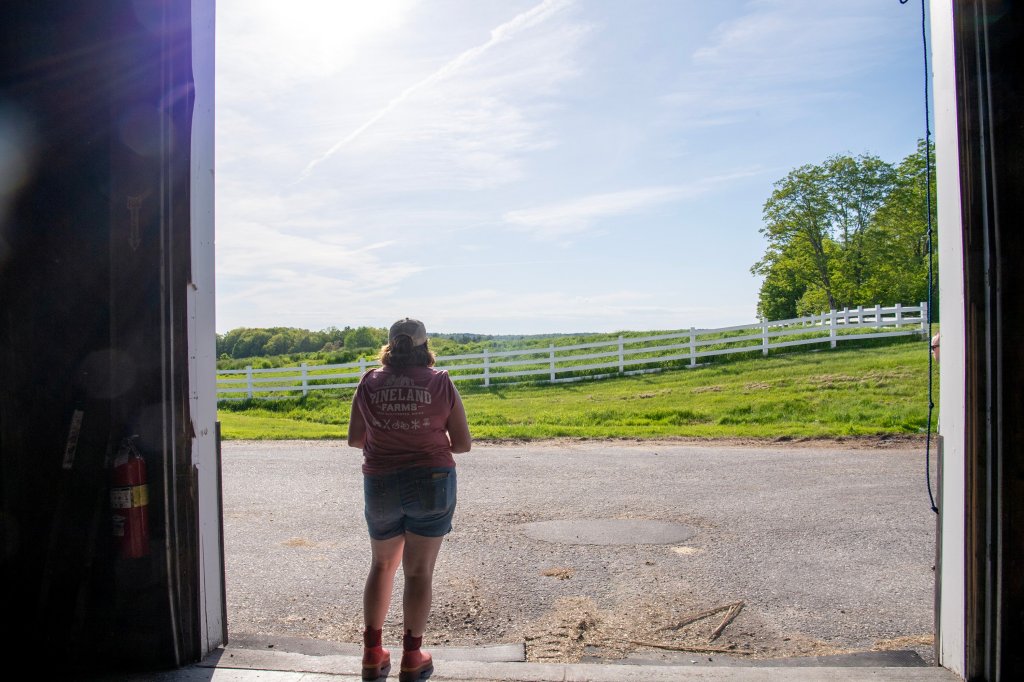
Pineland Farms has committed to only using milk from Maine farms. And the money the organization will save from cutting down the Holstein costs, and their sale, can go toward beefing up cheese production.
Amanda Beal, commissioner of the Maine Department of Agriculture, Conservation and Forestry, believes that these kinds of creative partnerships are key to the future success of the industry.
“We are seeing promising innovation in the works,” she said in an emailed statement.
SAYING GOODBYE
Brittany Moon grew up with cows on her family farm. She’s used to seeing animals come and go.
Still, Moon, the assistant director of the farm’s education department, said it was weird to say goodbye to 100 cows all at once. The first thing she noticed when she came to visit the barn after the cleanup was the resounding echo. She misses the bonds she formed.
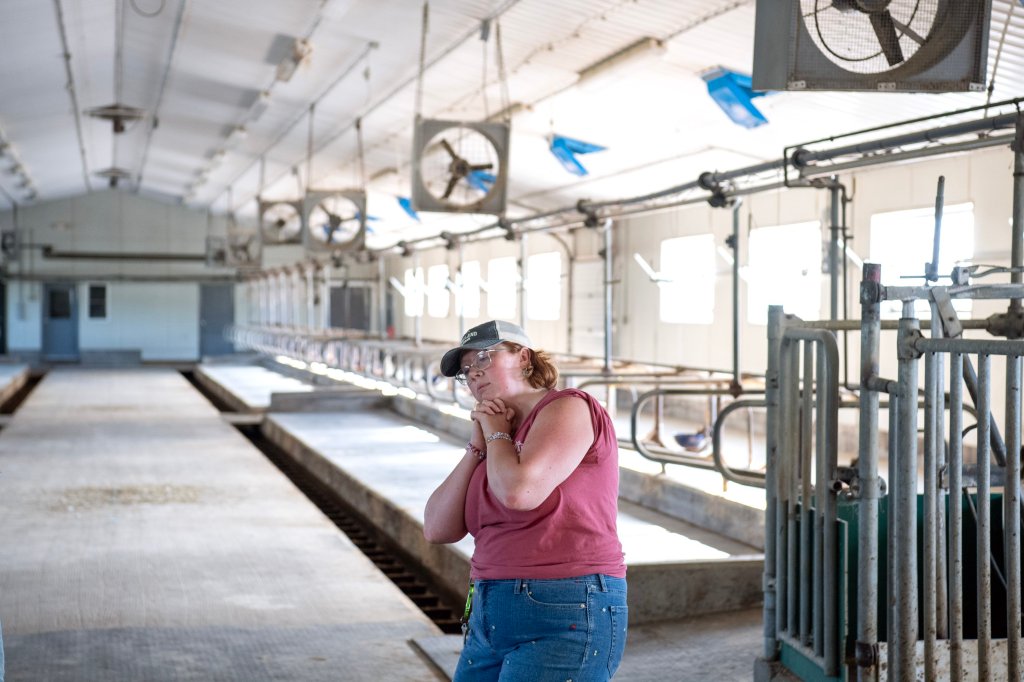
But Cathryn Anderson, the farm’s education department director, said there are plenty of possibilities moving forward, to grow educational opportunities and shift Pineland’s purpose.
“Certainly there’s a sadness, not seeing all the cows that used to be here day to day,” Anderson said. “But there’s also an excitement of what can happen.”
The hardest part of the process, however, was the reaction from the community. There were families visiting the cows every day, some coming once a week.
After announcing the sale on social media, Pineland got what Hayward described as a “flurry of comments” from people who were either disappointed, sad or concerned about the cows’ safety.
“Hopefully they’ll go to a sanctuary and not directly to a slaughterhouse,” one person commented.
Hayward, Moon and Anderson all emphasized that they were not only headed to dairy farms, but that a majority of the herd was staying together, continuing the lineage and legacy. Most are headed to the farms in New York and Vermont, while a few others have gone to local farm owners.
“It was nice to think that even though they’re not here anymore, there are groups of cows that came from Pineland who are still together out there in the world,” Moon said. “We’re spreading the genetics that we had worked so hard on, that are now benefiting other farms, and they’re getting to have these really high-producing, long-living animals, because we worked so hard to make them be such great cows.”
And it’s not the last of the cows on Pineland’s property. Highland cows continue to roam the property. And there are two members of the “T” family (which means the direct line to Tina, the original, 1880s era matriarch) holding down the fort: Timber and Thunder.
“The ‘T’ family is what started Pineland,” Moon said. “It’s poetic that we decided to keep these ones specifically, to keep that legacy going.”

We invite you to add your comments. We encourage a thoughtful exchange of ideas and information on this website. By joining the conversation, you are agreeing to our commenting policy and terms of use. More information is found on our FAQs. You can modify your screen name here.
Comments are managed by our staff during regular business hours Monday through Friday as well as limited hours on Saturday and Sunday. Comments held for moderation outside of those hours may take longer to approve.
Join the Conversation
Please sign into your CentralMaine.com account to participate in conversations below. If you do not have an account, you can register or subscribe. Questions? Please see our FAQs.